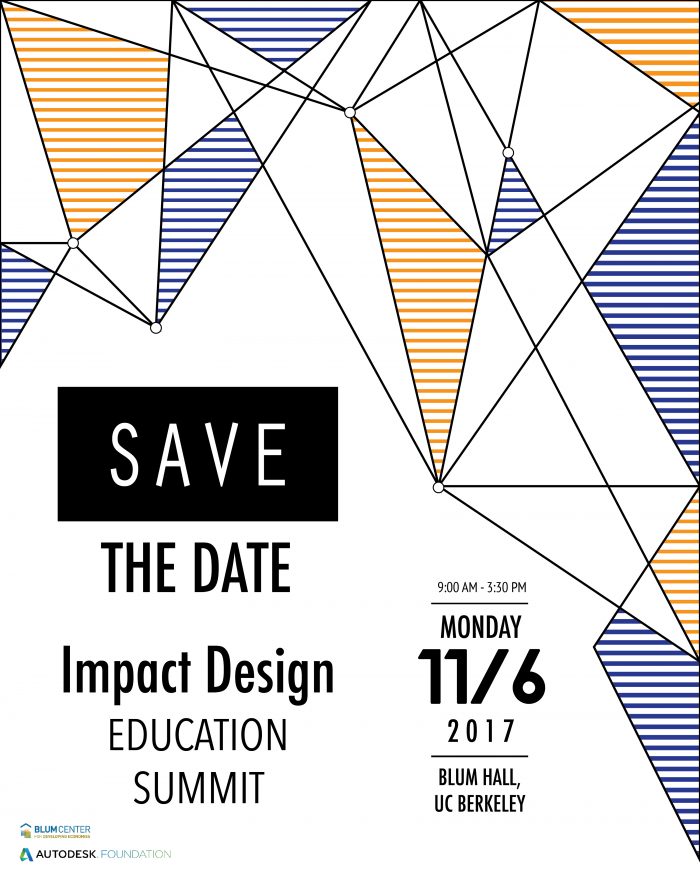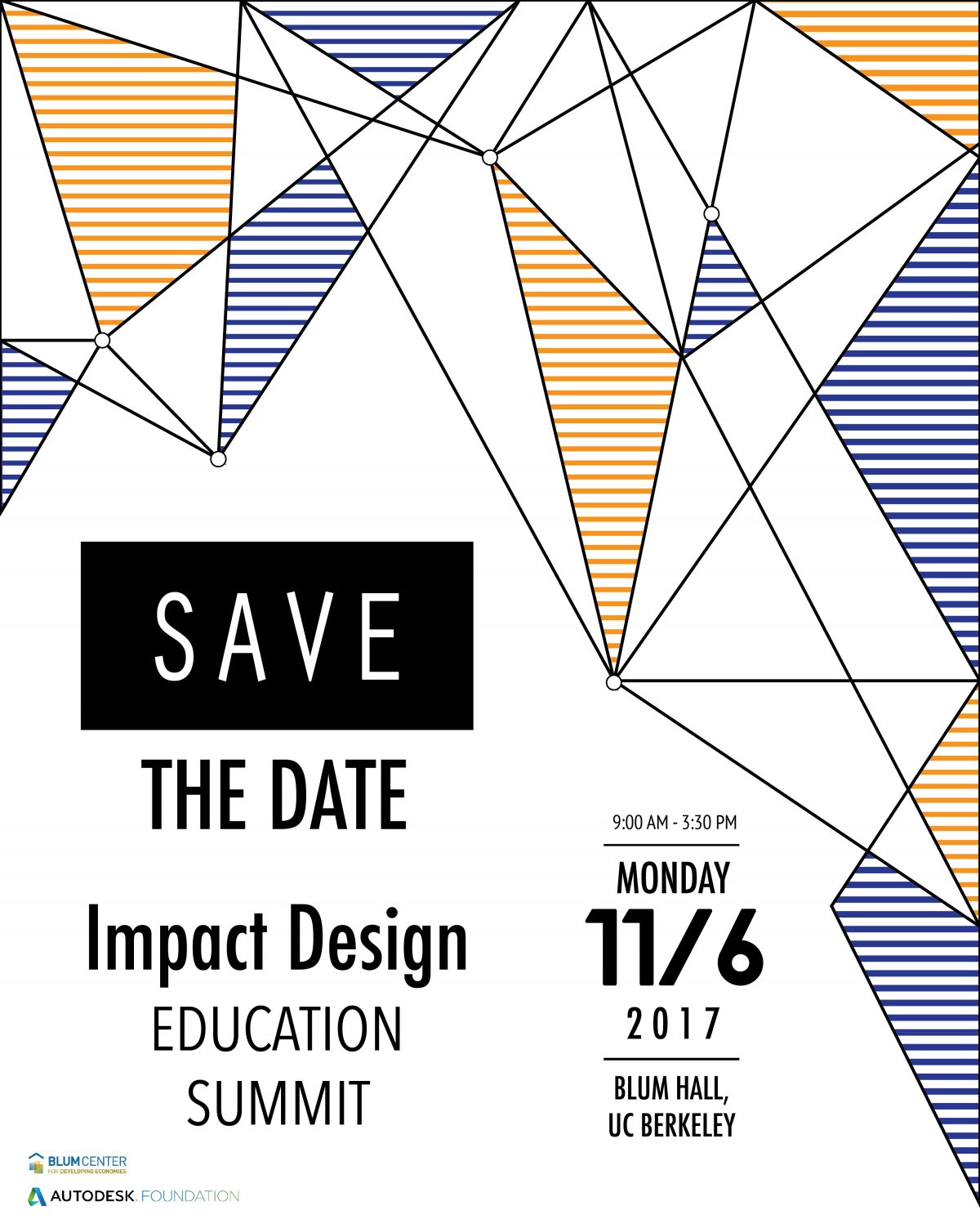Blum Center News
 February 1, 2016—As part of its investment focus on supporting people and organizations using design for impact, the Autodesk Foundation has awarded UC Berkeley’s Blum Center for Developing Economies one of the Foundation’s first university grants.
February 1, 2016—As part of its investment focus on supporting people and organizations using design for impact, the Autodesk Foundation has awarded UC Berkeley’s Blum Center for Developing Economies one of the Foundation’s first university grants.
The Blum Center is among four higher education institutions—including the Srishti Institute of Art, Design and Technology (Bangalore, India), Olin College (Needham, Mass.), and the Art Center College of Design (Pasadena, Calif.)—to be recognized for their impact design ecosystem.
Impact design is rooted in the core belief that design can be used to create positive social, environmental, and economic change, and focuses on actively measuring impact to inform and direct the design process.
“The Autodesk Foundation looked at hundreds of colleges and universities around the world engaged in impact design,” said Lynelle Cameron, president and CEO of the Autodesk Foundation. “We chose these four institutions for the strength of their programs and the diversity of their approaches. The Blum Center appealed to us because of its emphasis on human-centered design and experiential learning. We appreciate that the Blum Center’s impact design process relies on interdisciplinary collaboration for achieving breakthrough ideas and inventions.”
The gift will facilitate new courses and student initiatives that promote and support impact design. In particular, the Blum Center will launch a “Hardware for Good” challenge in its highly regarded student innovation competition, Big Ideas@Berkeley. Since its founding in 2006, Big Ideas@ Berkeley has inspired innovative and high-impact student-led projects aimed at solving problems that matter to this generation. The contest has sourced hundreds of innovations, and supported thousands of problem-solvers who have gone on to launch nonprofits, for-profits, and cross-sector partnerships that are scaling solutions across the globe.
In addition, the Blum Center will initiate a new project-learning track for students in the Development Engineering program. Development Engineering is an emerging field preparing the next generation of development practitioners totake an integrated approach to develop sustainable solutions. Utilizing human-centered design approaches, engineering expertise, and an economic framework, this emerging field combines cross-cultural learning, novel financing mechanisms, prototyping and scaling, rigorous evaluation, and new models for productive international collaboration.
“We are thrilled to be partnering with the Autodesk Foundation to support students and faculty who want to make a difference,” said Maryanne McCormick, executive director of the Blum Center. “Today’s greatest challenges require the expertise and collaboration of every possible field. A key ingredient of success is impact design, enabling more innovative, scalable, and measurable solutions.”
The Autodesk Foundation is the philanthropic arm of Autodesk, a multinational corporation that makes software for the architecture, engineering, construction, manufacturing, media, and entertainment industries. The Blum Center enables interdisciplinary problem-solving aimed at poverty alleviation and social impact, operating on the notion that a world-class, public university must be a force for addressing urgent and important issues. Since its founding in 2006, the Blum Center’s mission has been to train people, support ideas, and enable solutions.
“If we want more people using the power of design to address today’s epic challenges, we need to equip future designers and engineers with the skills, knowledge, and tools to do so,” said Joe Speicher, executive director of the Autodesk Foundation. “We chose to support the Blum Center for Developing Economies because of their success as an interdisciplinary hub for social impact studies and action that prepares the next generation of change agents.”
 Save the Date:Impact Design Education Summit
Save the Date:Impact Design Education Summit

